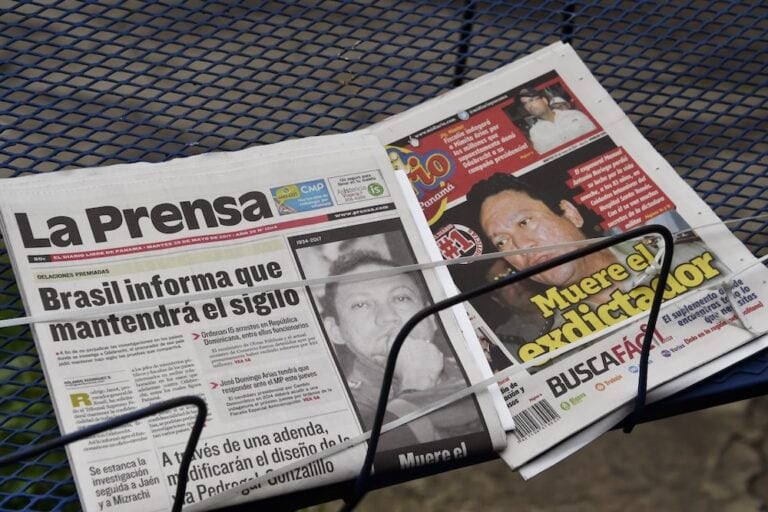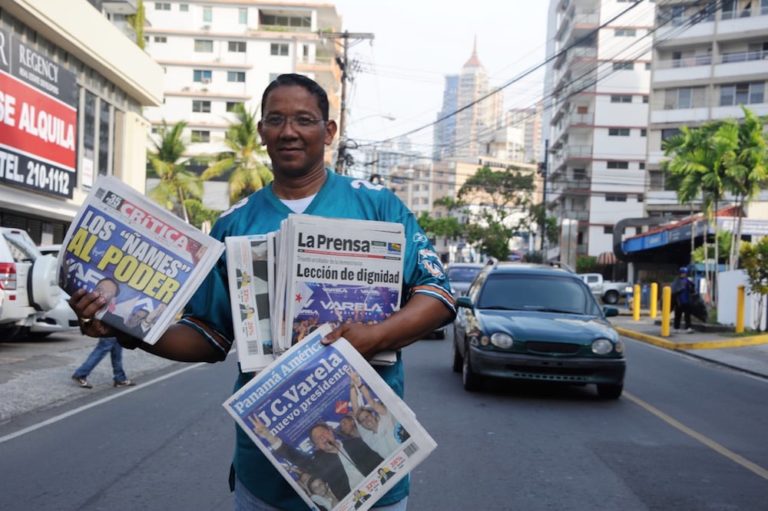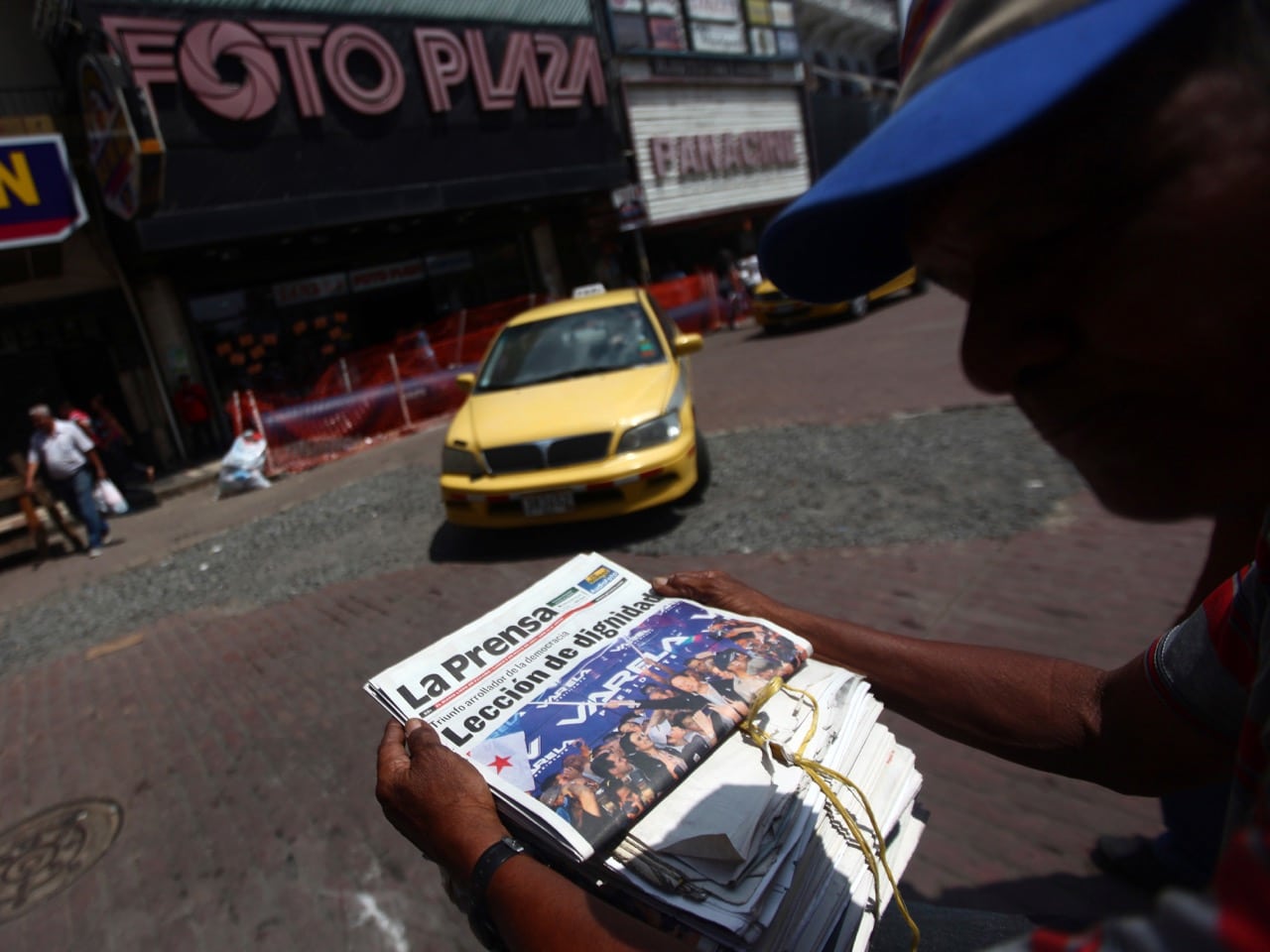(RSF/IFEX) – RSF is deeply disappointed by Panamanian President Martín Torrijos’ decision, on 21 March 2007, to endorse two articles in the newly-amended criminal code that violate press freedom. “By approving these two articles, President Torrijos is restricting the freedom of action of journalists to the point of preventing them from fulfilling the role they […]
(RSF/IFEX) – RSF is deeply disappointed by Panamanian President Martín Torrijos’ decision, on 21 March 2007, to endorse two articles in the newly-amended criminal code that violate press freedom.
“By approving these two articles, President Torrijos is restricting the freedom of action of journalists to the point of preventing them from fulfilling the role they are meant to play in a democracy,” the press freedom organisation said. “This decision is a big disappointment for us. It runs counter to the tendency in the Americas toward legislative changes that benefit the press. We hope an appeal will eventually be brought against these articles on the grounds of their unconstitutionality.”
The two articles, which have been strongly criticised by the Panamanian media, are part of a package of 448 amendments to the criminal code which the national assembly approved in a plenary session on 6 March.
Article 164: “Anyone legitimately coming into possession of private or personal mail, recordings or documents – not intended for publication, even if addressed to that person – who makes them public without the required permission and which results in harm, will be punished by 200 to 500 days of fines or weekend imprisonment”. [“days of fines” are equivalent to the minimum daily wage multiplied by a specific number of days]
Article 422: “Anyone guilty of revealing secrets which they hold as a result of their office within a government body or government contract or of allowing others access to them, will be punished with a sentence of six months to one year in prison or its equivalent in daily fines or weekend imprisonment”.
President Torrijos had 30 days to approve or veto the legislative package after it was submitted to him on 10 March. Presidential chief of staff Ubaldino Real announced on 21 March that the president would veto four of its provisions, but not articles 164 and 422.
The National Association of Journalists (CNP) said it sent a letter of protest to the president the same day, with a copy to the Inter-American Commission on Human Rights.
An appeal of the new criminal code could be presented to the Supreme Court on the grounds of unconstitutionality if it is established that it violates the American Convention on Human Rights and the Inter-American Convention against Corruption, both of which have been incorporated into Panama’s Constitution. However, such an appeal cannot be submitted until the entire legislative package has been promulgated. As four of its provisions were vetoed, it will have to go back to the National Assembly first.


